Archaeological Institute of America
Deadline: April 1, 2024
Amount: $1,000 – $4,000
Purpose: A scholarship established in honor of AIA Honorary President Elizabeth Bartman to assist advanced undergraduates, graduate students, or those who have recently completed a master’s degree with the expenses associated with participating in a museum internship either in the United States or abroad.
The internship fund is intended to help advanced undergraduates, graduate students, or those who have recently completed a master’s degree, in Archaeology or a related field (e.g., Anthropology, Art History, Classics, History, etc.) meet expenses associated with undertaking a museum internship (minimum duration a summer or semester). Specific projects will vary and might include the following: collection cataloguing, provenance or archival research, exhibition preparation, the writing of labels and/or didactic panels, assisting with websites and presentations in other media, such as audio guides and exhibition videos, and participating more broadly in museum activities, working with conservators, art handlers, designers, and other museum professionals.
The committee will consider academic achievement, past experience (or lack thereof), and financial need in its deliberations.
AIA scholarships are open to students from all backgrounds. Students from historically marginalized communities are encouraged to apply.
Requirements: Applicants are not required to be members of the AIA at the time of application. Successful applicants will receive a one-year complimentary student membership to the AIA. Applicants must be enrolled in an undergraduate or graduate program in Archaeology or a related field. Please note that all application materials (including references and transcripts, and the online application form below) must be received at the AIA by the April 1 deadline. Awards are contingent on confirmation of acceptance by a host institution. At the conclusion of the internship tenure, the recipient is required to submit a report on the use of the award to AIA Headquarters (directed to Kati Albert). Within two years of tenure of the internship, the recipient is also expected to submit an abstract to the Program for the Annual Meeting Committee, in order be considered for participation in the AIA Annual Meeting.
Applicants must complete the online application form (below) that asks for the following:
Project Proposal. The Museums and Exhibitions Committee attaches the greatest importance to the summary statement of your interest in museum work and how the proposed internship will help you to achieve your larger goals. It is helpful if you include background information outlining any past museum experience, field experience, and the reasons you wish to pursue museum work in general and this internship project in particular. Proposal to include information about the internship and your anticipated length of stay. Applicants must participate in the project for a summer (minimum of eight weeks) or a semester.
Budget. An outline of anticipated expenses associated with participation in the project and a statement from the applicant indicating any other financial resources available or applied for, if any, to help cover these expenses.
Transcripts. Official or unofficial transcripts from the applicant’s college(s) or university(ies). Applicants must include completed and/or current transcripts for undergraduate/graduate work. Transcripts may be sent Kati Albert or sent digitally to kalbert@archaeological.org.
Letters of Recommendation. The names and emails of two professors or academic advisors at the applicant’s college or university who know the applicant’s work and who are willing to provide letters of recommendation. These references will receive further instructions from the AIA. A recommendation from the prospective supervisor of the internship is encouraged.
All application materials including transcripts and letters of recommendation must be received by the April 1 deadline. Incomplete or late applications will NOT be considered by the review committee. Applicants will be notified of the committee’s decision no later than June 15.
NOTE: All applicants must notify Kati Albert immediately if there are any changes in their application information (i.e. the internship you applied for is changed or canceled; you received funding from other sources; etc.)
Awards are contingent on confirmation of acceptance by a host institution. Funding recipients must provide a letter from the supervisor of the museum project indicating that the applicant has been accepted for an internship. Deadline for receipt of this letter is June 30. This letter must be on museum letterhead and signed by the supervisor of the project. It may be emailed to Kati Albert (email: kalbert@archaeological.org). [NOTE: if one of your letters of recommendation is from the supervisor of the project and he or she certifies that you have been accepted for participation, this requirement will be considered complete.]
Recipients of Bartman Museum Internship Program funding must agree to submit a final report on their use of the funds and what the experience meant to them no later than 60 days after completion of the field project. Final reports will be posted on the AIA’s web page and may be featured in other AIA publications.
As part of the Archaeological Institute of America’s ongoing commitment to fieldwork and families, reasonable line items for the care of dependent and elderly family members are allowable expenses for AIA grants, fellowships, and scholarships.
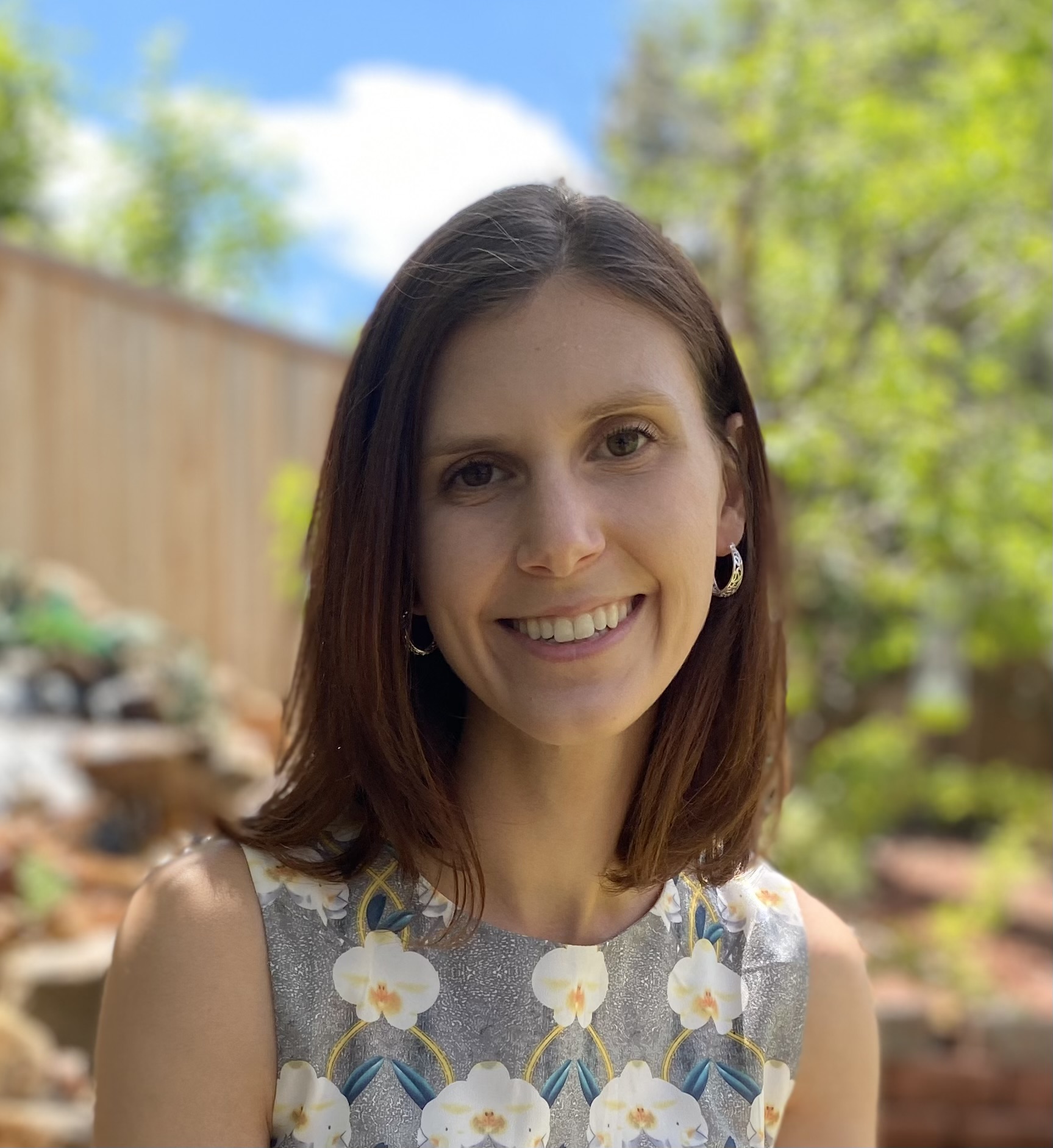
2022
Jenna Martin is a second-year MA student in the Cornell Institute of Archaeology and Material Studies at Cornell University, focusing on Roman Archaeology. She received her BA in Anthropology from the University of Montana. The Elizabeth Bartman Museum Internship will allow Jenna to pursue a curatorial internship and research in the Scottish History and Archaeology Department at the National Museum of Scotland. She will learn curatorial techniques, cataloguing procedures, and investigative methodologies with a focus on some of the museum’s lesser-studied Roman silver artifacts. Her thesis research investigates how Roman silver impacted socio-political trajectories in Iron Age Scotland by affording certain possibilities for human action in a landscape influenced by colonization, imperial power, and inequality.
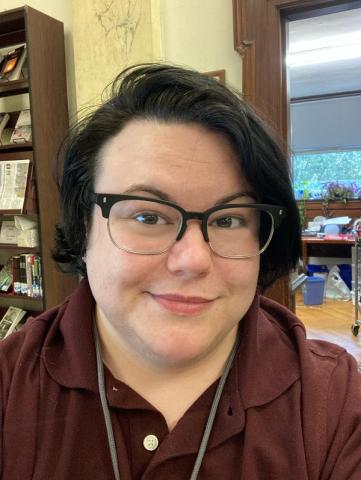
2022
Daniel W. Everton is a Masters student in Public Humanities at Brown University, focusing on repatriation, decolonization, and collections management. He received his B.A. in History at University of Massachusetts – Dartmouth in 2019. He has worked with art museums, library archives, and the National Park Service in the Greater Southcoast Area of Massachusetts. His interests include, but are not limited to, the history of craft and trade in textiles, gender and sexuality, and effects of colonization. Daniel’s internship with the Museo Egizio in Turin, Italy will provide foundational research for his thesis about the care and ethics of managing Ancient Egyptian collections and their exhibition, as well as learn digital humanities applications in the museum world. He hopes that his research outcomes will help provide answers and possible trajectories for the future of museums and collection managers grappling with current issues around repatriation and restitution.
Read about Daniel Everton's experience2021

2020
Luiza Silva is a Ph.D. student in Near Eastern Art and Archaeology at the University of Chicago, focusing on Egyptian archaeology. She received her B.A. in Egyptology and Archaeology and the Ancient World at Brown University in 2018, and her M.A. from the Department of Near Eastern Languages and Civilizations at the University of Chicago in 2020. The Elizabeth Bartman Museum Scholarship will allow Luiza to intern at The Art Institute of Chicago’s Department of Ancient and Byzantine Art. This project will offer Luiza the opportunity to combine skills she has learned through her previous work in museums (in curatorial and outreach capacities), in the field, and in the editing room to contribute to the research and display of the Art Institute’s Egyptian collection, which has been largely off view since 2012. This work will involve provenance and comparanda research of understudied objects as well as finding new ways to make these objects accessible to diverse audiences, including through the development of multilingual exhibit and educational materials.
Read about Luiza Silva's experience2019
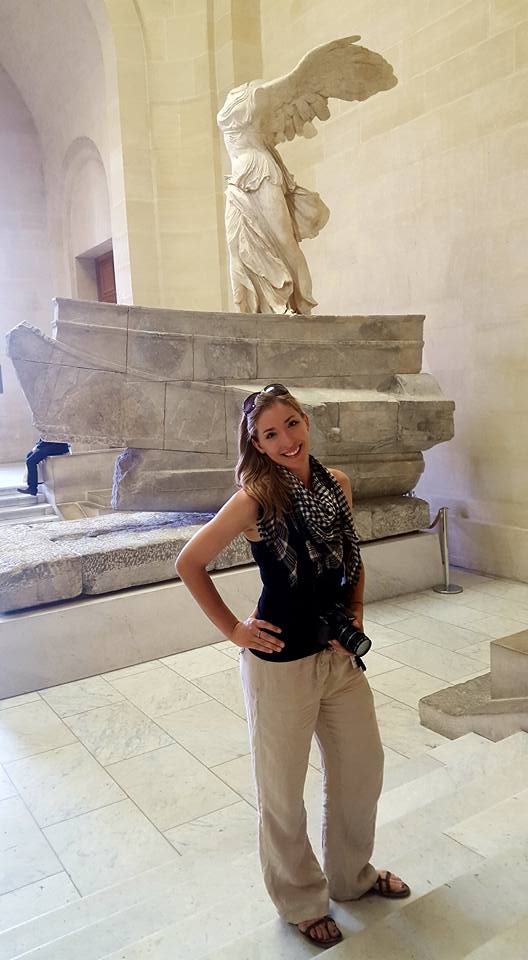
2018
Zoe Jenkins (Ortiz) is a Ph.D. candidate in the Interdepartmental Program of Classical Art and Archaeology at the University of Michigan focusing on Roman sculpture in the Imperial period. She received her B.A. in Classics from the University of Virginia in 2011 and earned a post-baccalaureate certificate at the University of North Carolina at Chapel Hill in 2015. She has served as the Curatorial Intern of Classical Art at the North Carolina Museum of Art in Raleigh, North Carolina and as a co-curator of the exhibition “Urban Biographies” at the Kelsey Museum of Classical Archaeology in Ann Arbor, Michigan. Her current research focuses on understanding the role that sculptural assemblages play in cities in the Imperial period that are going through times of transitioning. During her internship at the Musée du Louvre, she will be able to analyze one such sculptural assemblage from Gabii, a Roman site at which she excavates. This research will provide a core case study that will contribute to her dissertation.
Read about Zoe Jenkins's experience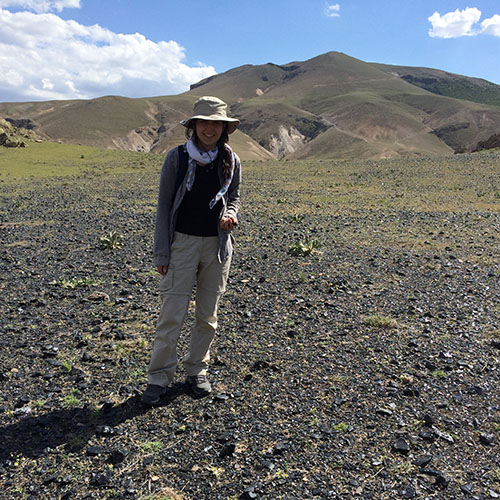
2017
Elifgül Doğan completed her B.A in Archaeology and the History of Art and her minor in International Relations at Koç University, Istanbul. She is currently continuing her M.A studies in Cultural Heritage Management and Museum Studies at Koç University. For her thesis, she is studying the legislative, ethical and museological issues regarding archaeological human remains in Turkey. The Elizabeth Bartman scholarship will enable her to gain curatorial experience in human remains exhibitions at the UCL Petrie Museum of Egyptian Archaeology in London. In this internship, she will conduct collections management research on the human remains, contribute to the development of an exhibition focused on human remains research, and prepare ethical guidelines and procedures for such a display. Elif will integrate her internship experience into her thesis, which she hopes to use for establishing the legislation that deals with archaeological human remains and the practices associated with them in Turkey.
Read about Elifgül Doğan's experience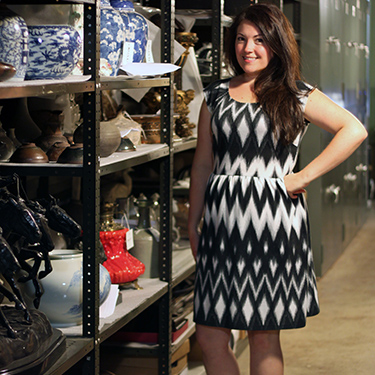
2017
Rachel Vykukal is a Ph.D. candidate in Anthropology at the University of Tennessee-Knoxville. She received an M.A. in Mediterranean Archaeology from the same institution in 2011. Previously, she earned a B.S. in Anthropology and a B.A. in Studio Art from the College of Charleston. The Elizabeth Bartman Museum Fund will allow her to intern at the Agora Records Department of the American School of Classical Studies in Athens, Greece, which houses all artifacts and records from the decades-long excavation. The Agora, still an active excavation, served as the economic, social, and political center of Athens in the Classical period, but was used from at least the Bronze Age onward. In this internship, Rachel will gain hands-on experience with a broad range of artifacts from all periods of the Agora excavations, expand her collections management and archival skills, and engage in theoretical considerations of best practices in the long-term curation of objects and records.
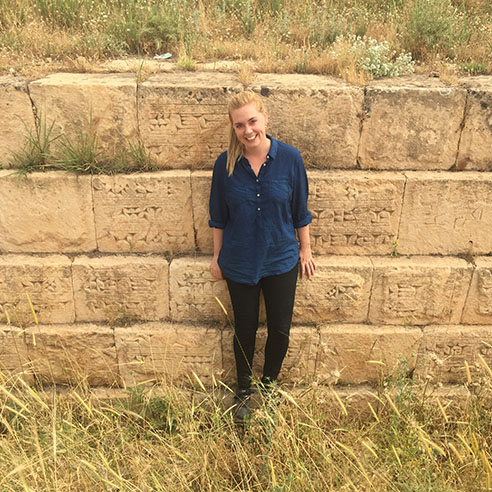
2017
Katherine Burge is a Ph.D. candidate in Art and Archaeology of the Mediterranean World at the University of Pennsylvania focusing on the archaeology of Mesopotamia. She received her B.A. in Near Eastern Languages and Civilization from the University of Washington in 2009, and completed an M.A. in “Near Eastern Antiquity” at the Ecole Pratique des Hautes Etudes-la Sorbonne in Paris in 2013. The Elizabeth Bartman Museum Scholarship will allow Katherine to intern at the Penn Museum assisting curators with the Middle East Gallery project, a new permanent exhibit set to open in spring 2018, which integrates objects with archival data and ongoing museum research in order to show how certain essential aspects of modern life developed first in the ancient Near East. This internship, which will entail finalizing object labels, narrative panels, and the exhibition catalogue, will offer Katherine a rare opportunity to gain curatorial experience working with one of the largest collections of Near Eastern material in the United States.
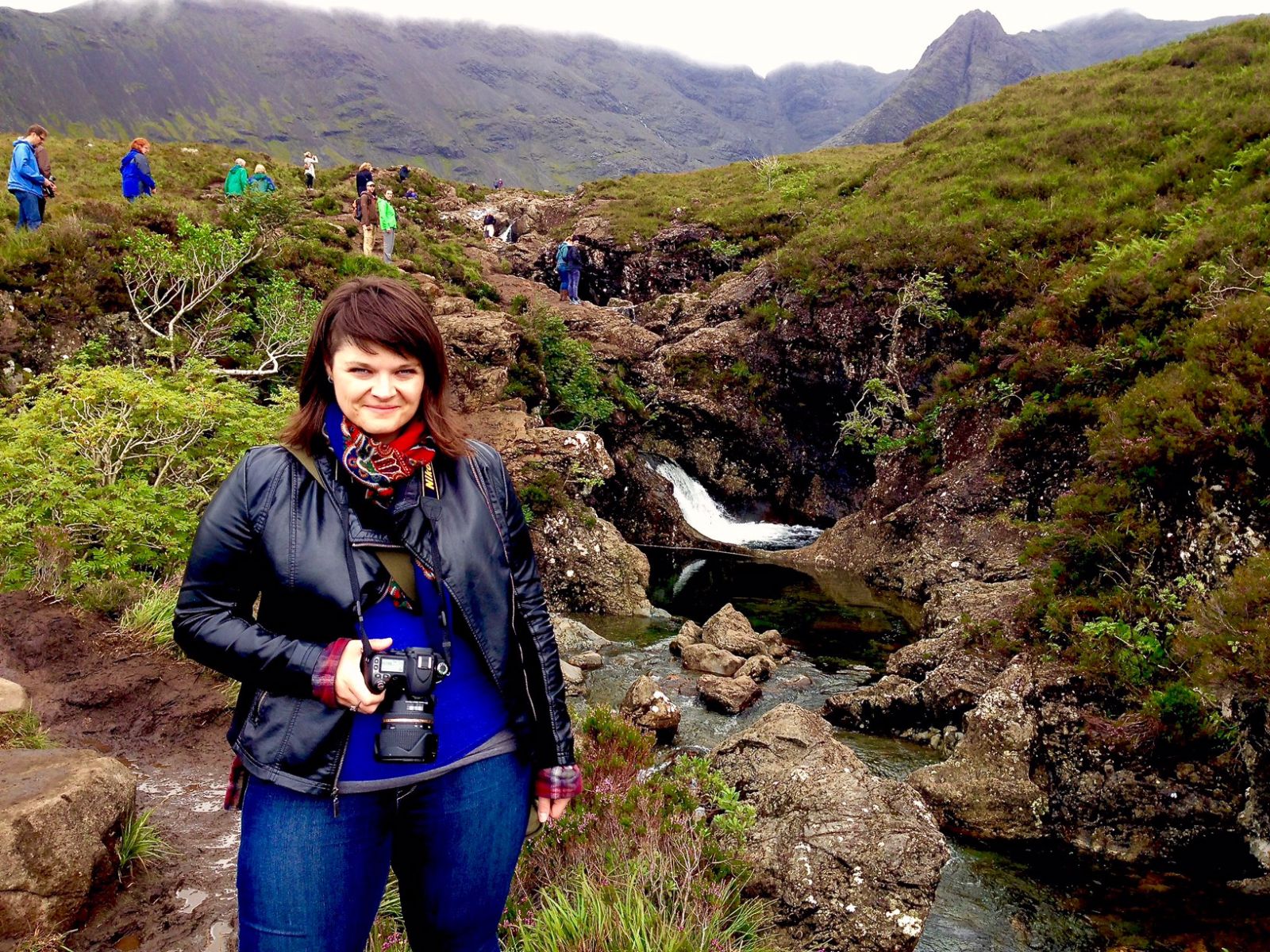
2016
Alexis Jordan is a PhD candidate in Anthropology at the University of Wisconsin-Milwaukee. She received her MS in Anthropology from the the same school in 2009 and her BS in Anthropology from Loyola University-Chicago in 2006. As part of her dissertation research, she will spend eight weeks at the Royal Cornwall Museum in Great Britain. The Bartman grant will allow her to conduct archival research and commingled skeletal analyses on the remains from Harlyn Bay, the largest Iron Age cemetery in Cornwall. This collection, which has never been studied in its entirety, is vital to her dissertation research, which focuses on the construction of cultural identities in the Pre-Roman and Roman Iron Ages (800 BCE-CE 400) in southwestern Britain through the analysis of mortuary ritual and human remains.
Read about Alexis Jordan's experience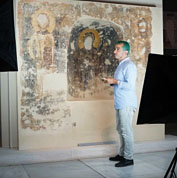
2016
Yiğit Z. Helvacı completed his BA in Classics at Istanbul University. He received his first MA degree in Archaeology and Art History from Koç University, Turkey and his second MA degree in Archaeological Materials Sciences from the University of Évora, Portugal and Sapienza University of Rome, Italy. The Elizabeth Bartman scholarship will give him the opportunity to intern at the Museum of Byzantine Civilizations, Thessaloniki, Greece, where he aims to create digital 3D models of the museum collection using photogrammetry. Helvacı hopes to gain professional experience in a museum environment and hone his practical skills in documentation. All models that are created during his tenure will be made available in the museum website for public viewing.
Read about Yiğit Z. Helvacı's experience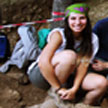
2015
Ana Abrunhosa received her MA in Archaeology from the University of Porto in Portugal in 2012, and received her BA in Archaeology from the same school in 2010. Although she attempted to begin a Ph.D. in 2013, economic difficulties and drastic funding cuts in Portugal left her without research funding. The Bartman scholarship will enable Ana to intern in Spain at the Museo Arqueolgico Regional de la Comunidad de Madrid (MAR). In this internship, she will catalogue a large collection of lithic artifacts from the Pinilla del Valle Middle Palaeolithic site, and assist with the Pinilla del Valle summer field campaign of 2015. This internship will give her the opportunity to work directly with materials that she will use in further Ph.D. research.
Read about Ana Abrunhosa's experience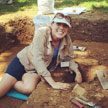
2015
Sarah Kate McKinney is a graduate student in Applied Anthropology at Mississippi State University. She graduated cum laude with a BA in Anthropology from Middle Tennessee State University in 2014. As part of her dissertation research, she spent eight weeks working with zoologist Dr. Robert Hershler in the Department of Invertebrate Zoology at the National Museum of Natural History at the Smithsonian Institute. While in Washington, she explored the biology of mussels, to prepare her to study the differences between prehistoric and modern mussel shell assemblages along the upper Tennessee River.
Read about Sarah Kate McKinney's experience